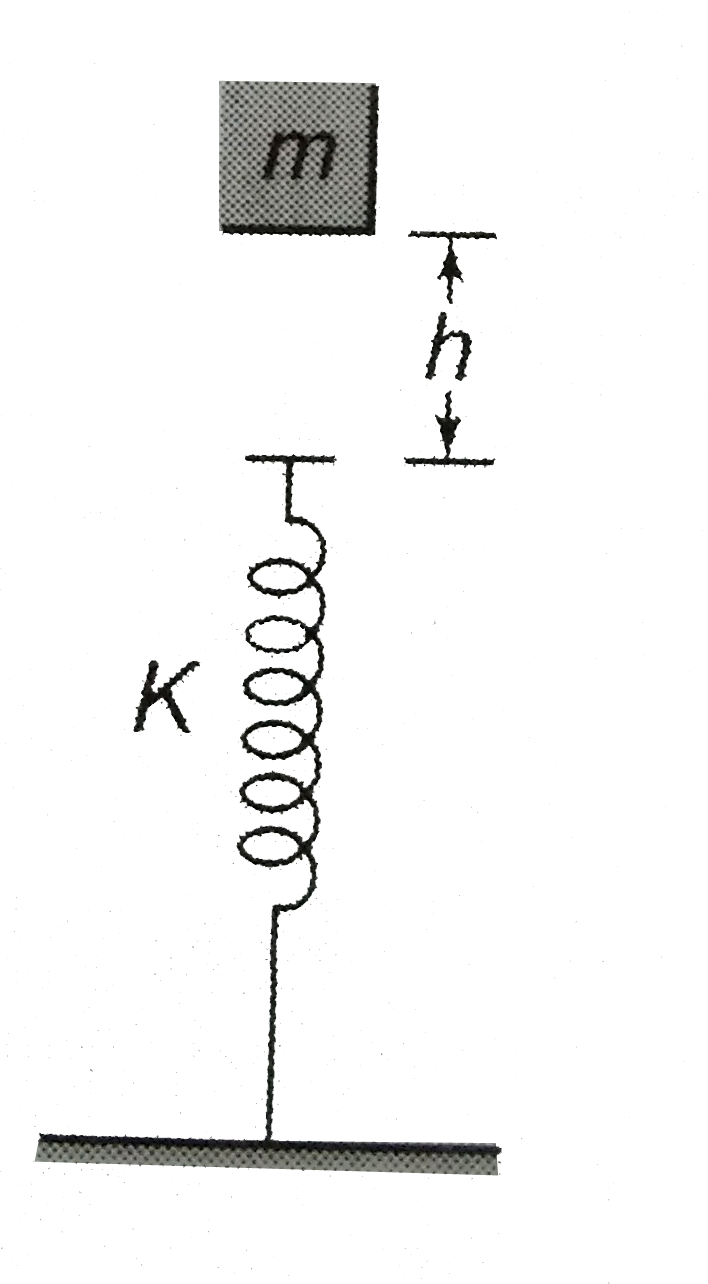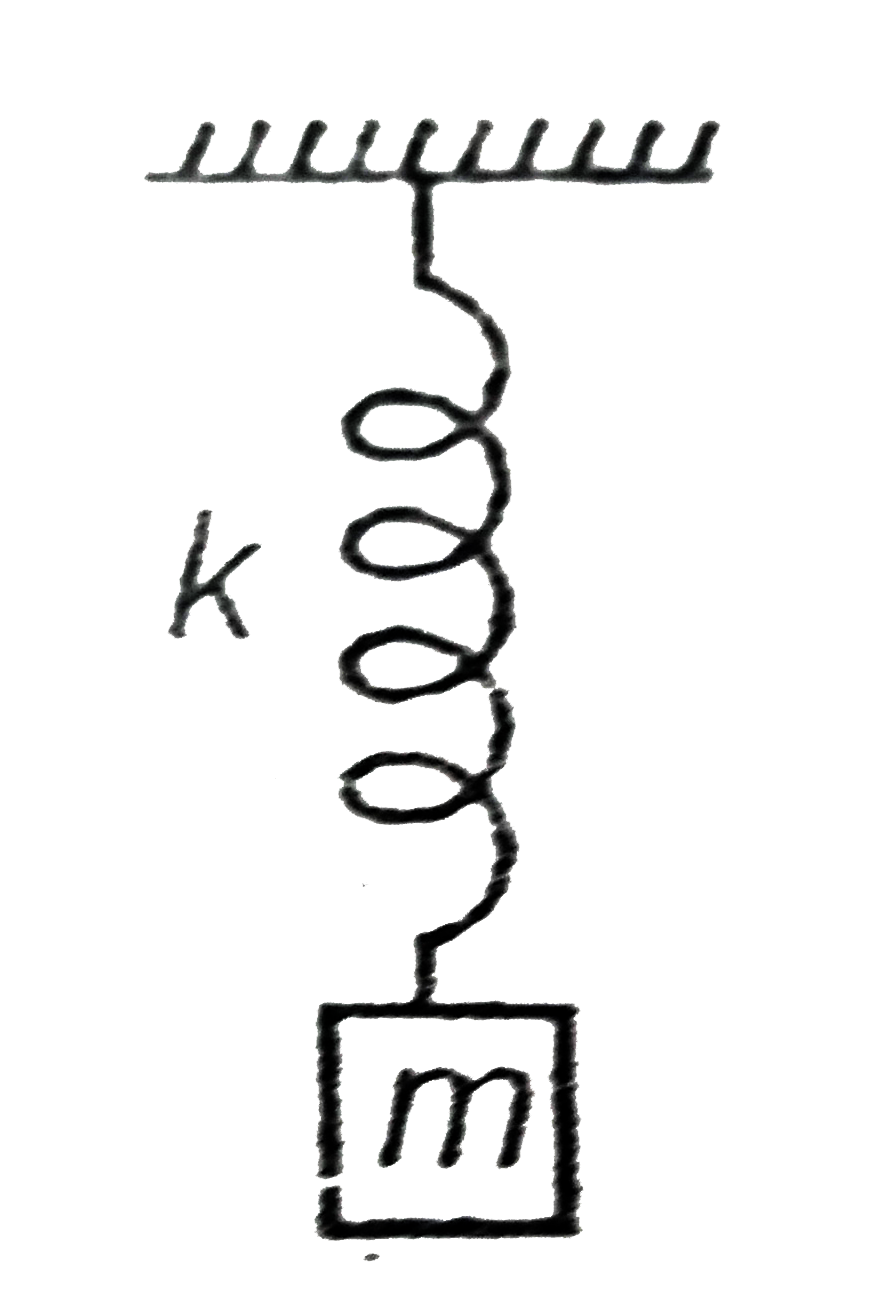A block is tied within two spring, each having spring constant equal to k. Initially the springs are in their natural length and horizontal as shown. The block is released from rest. The springs are ideal, acceleration due to gravity is g downwards. Air resistance is to be neglect. The natural length of spring is l0.
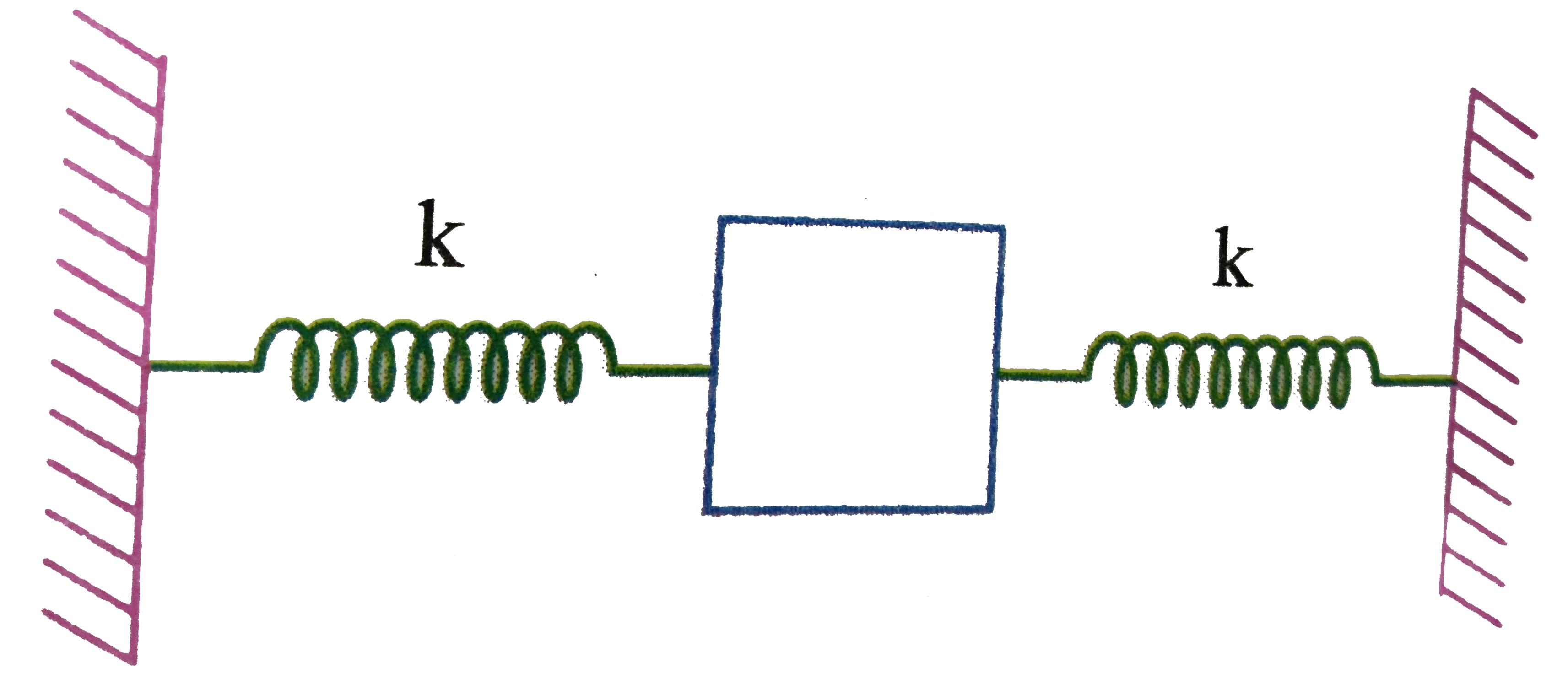
If the decrease in height of the block till it reaches equilibrium is √3l0 then the mass of the block is:
2kl0g
√2kl0g
√3kl0g
None of these
The correct Answer is:C
A block is tied within two springs, each having spring constant equal to k. Initially the springs are in their natural length and horizontal as shown. The block is released from rest. The springs are ideal, acceleration due to gravity is g downwards. air resistance is to be neglect. The natural length of spring is l0.
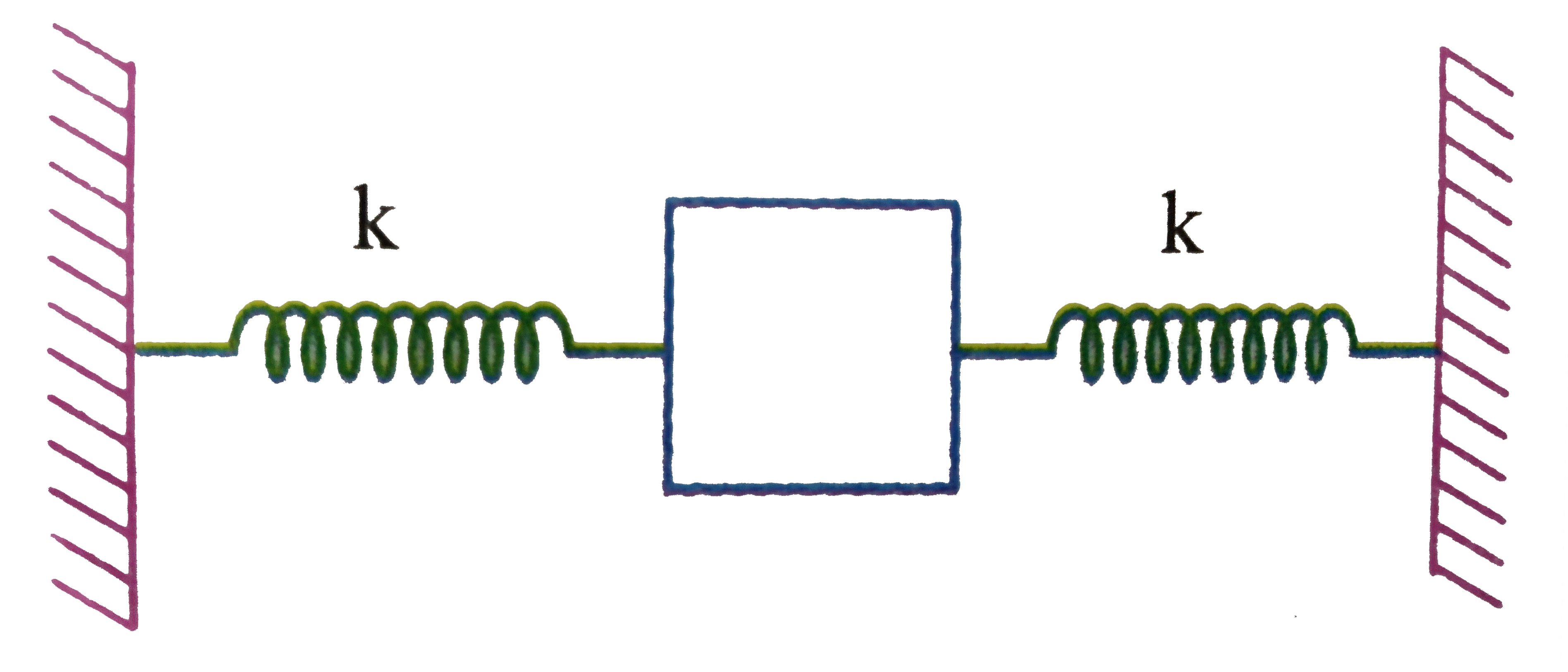
l0+x0=√l20+3l20=2l0⇒x0=l0
mg=[kx0sin60∘]2=√3kl0⇒m=√3kl0g
tanθ=√3⇒θ=60∘
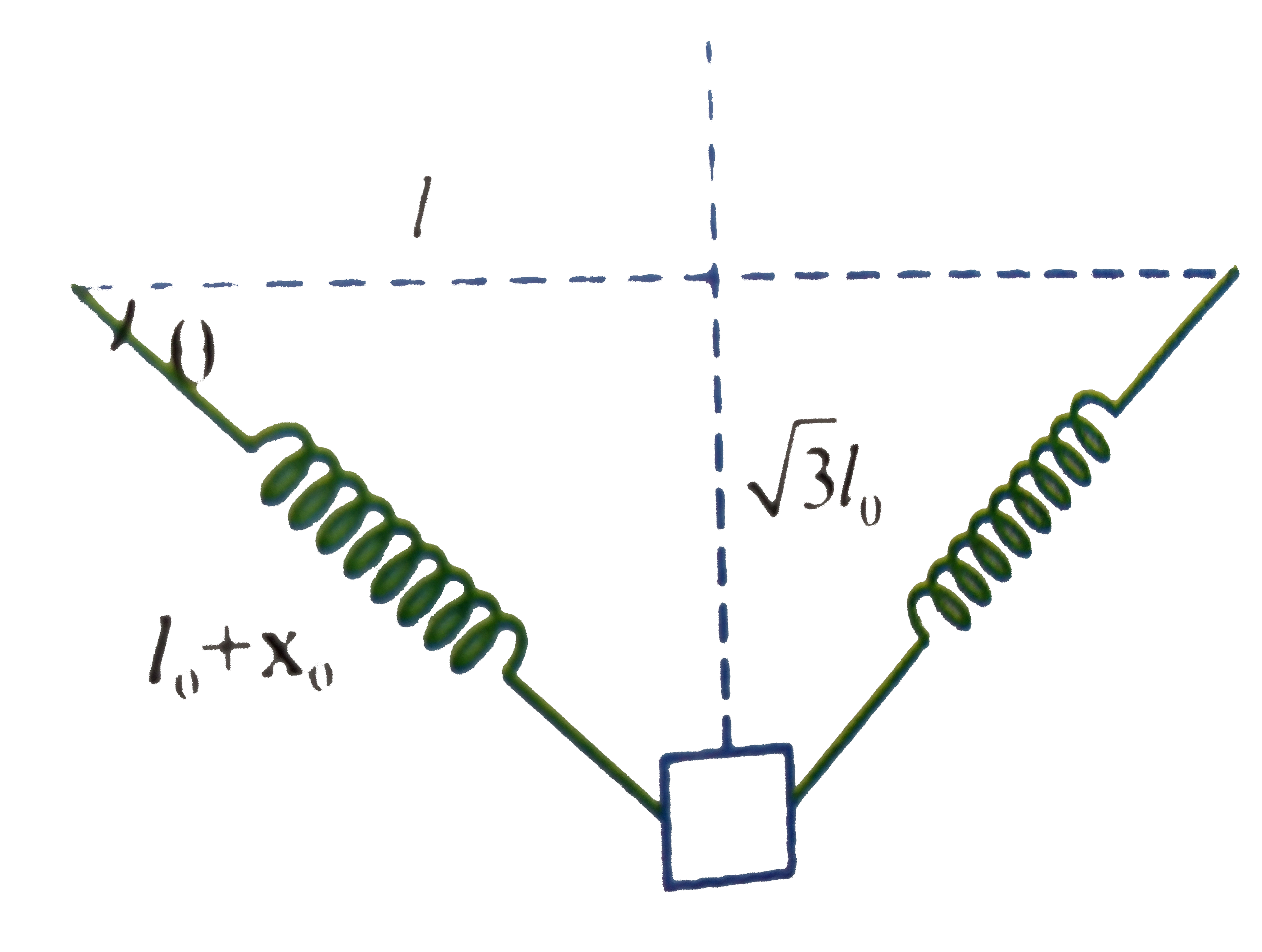
Topper's Solved these Questions
- OSCILLATIONSBOOK - NARAYNACHAPTER - OSCILLATIONSEXERCISE - Passage-XI
1 Videos
- OSCILLATIONSBOOK - NARAYNACHAPTER - OSCILLATIONSEXERCISE - Passage-XII
1 Videos
- OSCILLATIONSBOOK - NARAYNACHAPTER - OSCILLATIONSEXERCISE - Passage-IX
1 Videos
- NEWTONS LAWS OF MOTIONBOOK - NARAYNACHAPTER - NEWTONS LAWS OF MOTIONEXERCISE - PASSAGE TYPE QUESTION
6 Videos
- PHYSICAL WORLDBOOK - NARAYNACHAPTER - PHYSICAL WORLDEXERCISE - C.U.Q
10 Videos
Similar Questions
Knowledge Check
A block is tied within two spring, each having spring constant equal to k. Initially the springs are in their natural length and horizontal as shown. The block is released from rest. The springs are ideal, acceleration due to gravity is g downwards. Air resistance is to be neglect. The natural length of spring is l0.
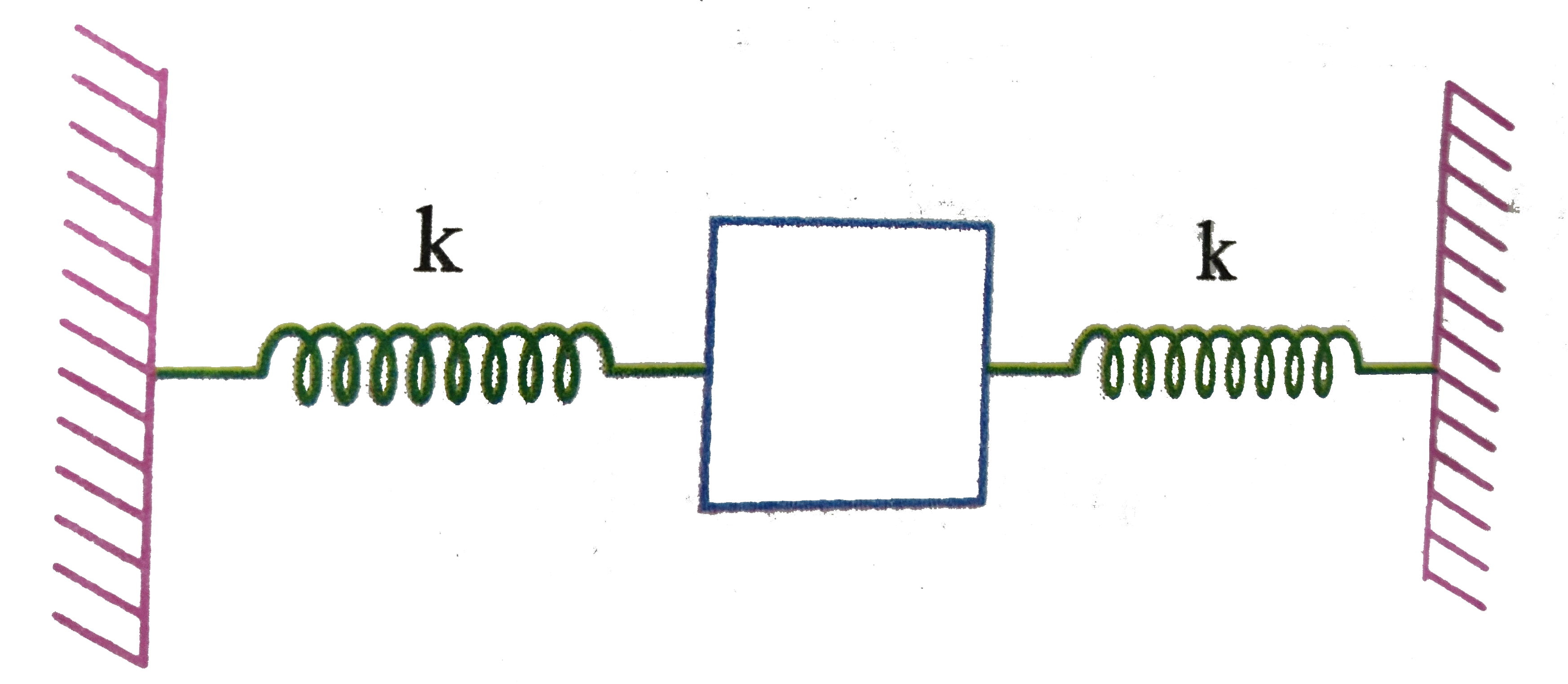
If the decrease in height of the block till its speed becomes zero is √8l0 then the mass of the block is:A2kl0gB√2kl0gC√3kl0gDNone of theseA block is tied within two spring, each having spring constant equal to k. Initially the springs are in their natural length and horizontal as shown. The block is released from rest. The springs are ideal, acceleration due to gravity is g downwards. Air resistance is to be neglect. The natural length of spring is l0.
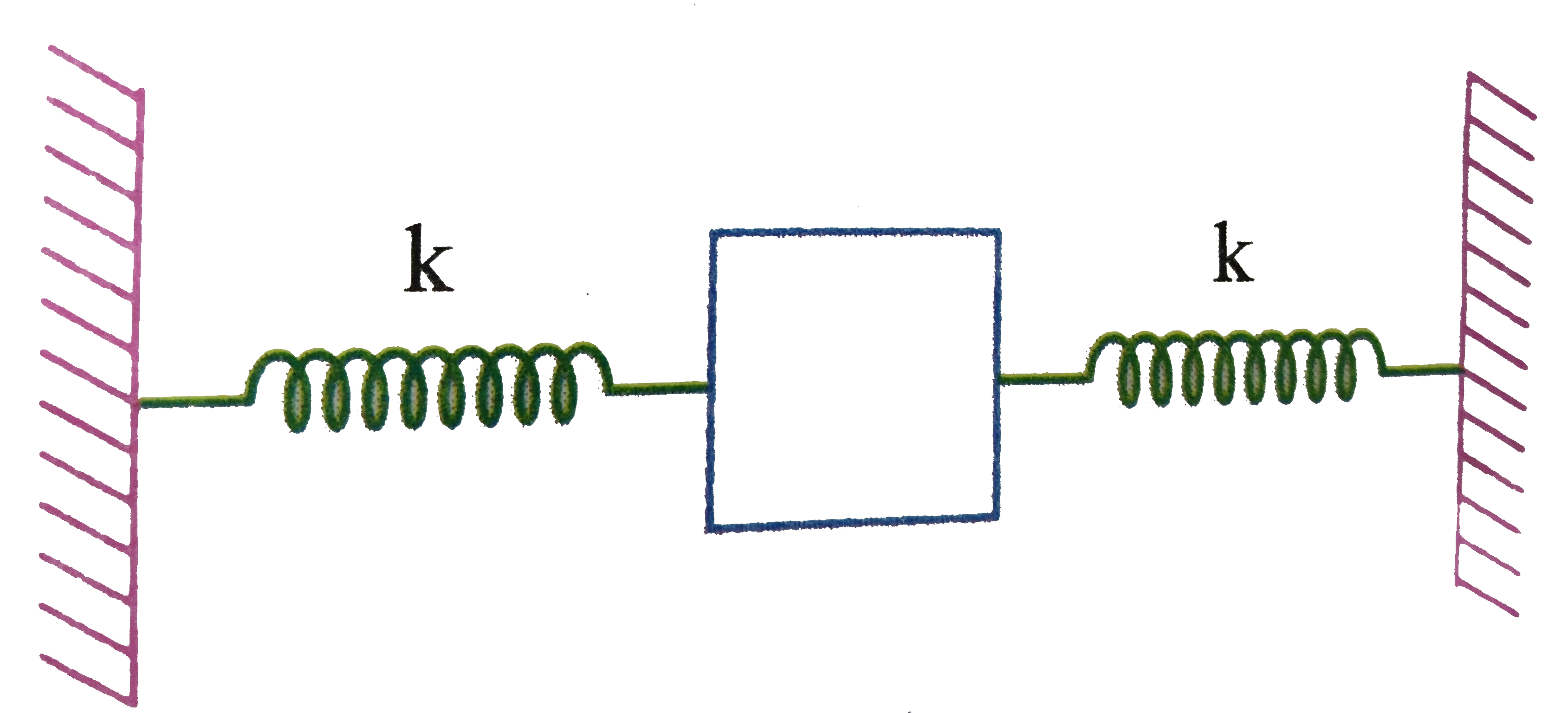
If the block is under equilibrium and the angle made by the spring with horizontal is 60∘ then the mass of the block is:A2gl0√2B√2gl0√3C4gl0√3DNone of theseFind the maximum tension in the spring if initially spring at its natural length when block is released from rest.
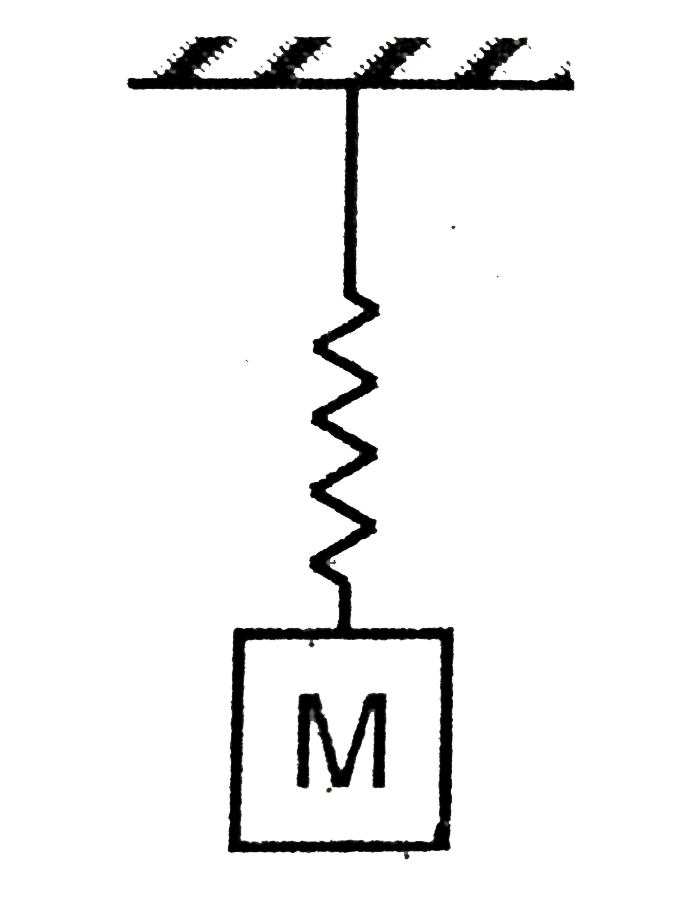 AmgBmg/2C3mg/2D2 mg
AmgBmg/2C3mg/2D2 mg
The block shown in figure is released from rest and initially the spring is at its natural length. Write down the energy conservation equation. When the spring is compressed by l1?
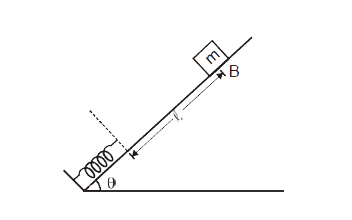
View SolutionA block of mass m is attached to a spring of force constant k whose other end is fixed to a horizontal surface. Initially the spring is in its natural length and the block is released from rest. The average force acting on the surface by the spring till the instant when the block has zero acceleration for the first time is
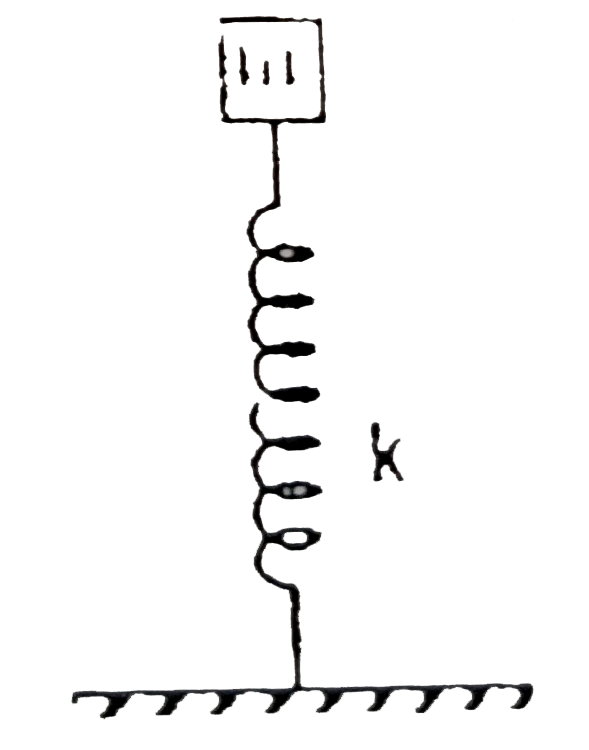
View SolutionInitially spring is in natural length and both blocks are in rest condition. Then deter mine

maximum extension in spring . K = 20 N/M
View SolutionTwo blocks of masses m1 and m2 are connected by a spring having spring constant K. Initially , the spring is at its natural length. The coefficient of friction between the blocks and the surface is μ. What minimum constant force has to be applied in the horizontal direction to the block of mass m1, in order to shift the other block ?
View SolutionA block of mass m attached with a spring and held by a person such that the spring is in natural length l0. Now the man releases the block, the ratio of maximum compression in the spring in the given situation , to that of the compression at equilibrium position.

View Solution

